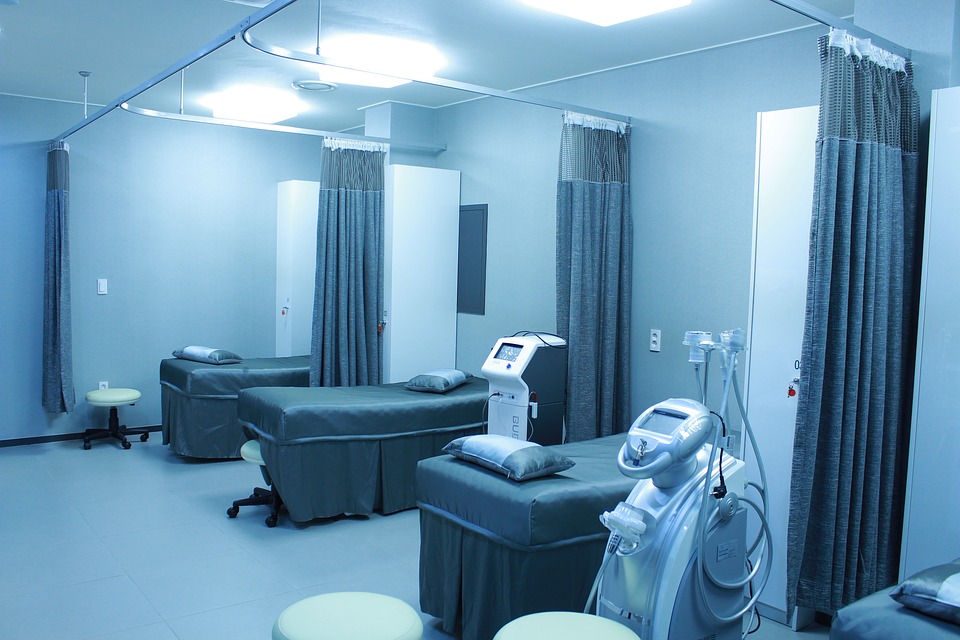Health News Roundup: Rare manufacturing glitch raises concern,Women UTis and lot more

Following is a summary of current health news briefs.
DaVita unit to pay $270 million to resolve Medicare payments probe
A medical care unit of DaVita Inc has agreed to pay $270 million to resolve claims it provided inaccurate information about patients that caused Medicare Advantage plans operated by private insurers to obtain inflated payments from the government. The civil settlement with HealthCare Partners Holdings, which Denver-based DaVita acquired in 2012 and is in the process of selling to UnitedHealth Group Inc, was announced on Monday by the U.S. Justice Department.
Scientists behind game-changing cancer immunotherapies win Nobel medicine prize
American James Allison and Japanese Tasuku Honjo won the 2018 Nobel Prize for Physiology or Medicine on Monday for game-changing discoveries about how to harness and manipulate the immune system to fight cancer. The scientists' work in the 1990s has since swiftly led to new and dramatically improved therapies for cancers such as melanoma and lung cancer, which had previously been extremely difficult to treat.
Rare manufacturing glitch raises concern over CAR-T therapies: study
A single leukaemia cell inadvertently got mixed in with a batch of a patient's immune cells that were being manufactured into a CAR-T cell therapy and it acquired resistance to the treatment with deadly results, University of Pennsylvania researchers reported on Monday. The mishap occurred in a 20-year-old leukaemia patient treated with cells manufactured at the university, eventually causing a fatal relapse of the blood cancer, researchers reported in the journal Nature Medicine.
Women who drink more water get fewer UTIs
Women who drink extra water to avoid urinary tract infections (UTIs) may be on to something. A new experiment offers fresh evidence that drinking more water each day can make UTIs less frequent. For the study, researchers focused on 140 women with recurrent UTIs who typically drank fewer than 1.5 litres of fluid (about six 8-ounce glasses) a day. For 12 months, researchers asked half of these women to continue their usual fluid intake and asked the other half to drink an additional 1.5 litres of water daily.
Philip Morris sues South Korea over e-cigarette info disclosure
Philip Morris Korea Inc. said on Monday it has filed a lawsuit against the South Korean government, demanding the disclosure of information on a recent test that concluded electronic cigarettes contain harmful substances. Seoul's Ministry of Food and Drug Safety said in June after a study that up to five cancer-causing substances were found in the heated smoking devices, and the level of tar discovered in two products, including Philip Morris' iQOS, exceeded that of regular cigarettes.
AmerisourceBergen to pay $625 million in U.S. civil fraud settlement
AmerisourceBergen Corp, one of the largest U.S. drug wholesalers, will pay $625 million to resolve civil fraud charges over the sale of syringes containing drugs for cancer patients, double billing, and providing kickbacks to doctors. The settlement announced on Monday by the U.S. Department of Justice boosts AmerisourceBergen's total payout to $885 million over its repackaging and distribution of pre-filled syringes that were not approved by the U.S. Food and Drug Administration.
Virus hurts hopes of fatter returns for Russian pork producers
Russia's pork industry is being hampered by African Swine Fever (ASF) as outbreaks of the virus are preventing producers from exporting more to lucrative Asian markets and leaving them with falling prices at home, industry experts say. Russia first reported ASF in 2007 and has registered more than 1,300 cases since then as the highly contagious hemorrhagic disease of pigs has spread from the southern Caucasus region to the country's northwest region and Siberia in the east.
The U.S. still outpaces other nations in infant, child mortality
Mortality rates for infants, children, and young adults have fallen in the U.S., Canada, England and Wales, but death rates in a new study were still higher for American youth than for young people in other countries. Previous research has found babies more likely to die in the U.S. than in other developed and affluent nations, but the current study suggests this is true even later in childhood and early adulthood.
Sleep-deprived teens more apt to drink, smoke and have unsafe sex
Teens who get too little sleep may be more likely to engage in risky behaviours like drinking, smoking, and unprotected sex than their peers who get enough rest at night, a study of U.S. high school students suggests. Roughly seven in 10 American high school students average less than eight hours of sleep a night, falling short of the recommended eight to 10 hours adolescents need for optimal physical and mental health, the study found.
WHO plays down risk to Indian children from the tainted polio vaccine
The World Health Organisation (WHO) said on Monday that there was minimal risk of children contracting the polio virus in India from a tainted batch of vaccines. The public health care, which potentially affected thousands of children, put a renewed spotlight on lax pharmaceutical quality control procedures in India.
(With inputs from agencies.)
- READ MORE ON:
- Monday by the U.S
- study
- Monday
- Morris Korea Inc
- patients
- researchers
- cancer
- U.S
- drink
- health
ALSO READ
Bihar: Ex-Deputy CM Sushil Modi reveals cancer diagnosis
Many patients of destroyed Gaza hospital will die if not evacuated, WHO chief warns
President Droupadi Murmu launches indigenously-developed CAR T-cell therapy to treat cancer in Mumbai.
Sanofi to settle 4,000 Zantac cancer lawsuits in US state courts
President Murmu launches indigenously-developed CAR T-cell therapy for cancer treatment










